 |
||||||||||
|
 |
|||||||||
PRAISE FOR SALOON MAN FROM AUTHORS, CRITICS, HISTORIANSClick On Names Below to Reveal Quotes
David Appleby Alan Bliss William Lee Ellis William Reynolds Ferris Aidan Levy Gene Seymour Ken Tucker Kirkus Reviews
“Mugge tributes his great-grandfather, a prominent developer of the fledgling city of Tampa, Florida. In 1870, 17-year-old Wilhelm August Robert Mugge, apprentice jeweler and watchmaker, fled Germany immediately after the outbreak of the Franco-Prussian War. He made his way to Henderson, Kentucky, where his cousin Augusta lived. Two years later he moved to the larger city of Terre Haute, Indiana. In October of 1876, Robert…move[d] to Tampa, Florida, a small hamlet with a population of only a few hundred (“Tampa was little more than a settlement”). Restless and ambitious, Robert became involved in a variety of business ventures—he built a bottling plant for his soda business, later converted into a beer distributorship, leading to his position as the saloon kingpin in Tampa. Mugge intertwines Robert’s biography with an extensively detailed history of Tampa’s development. The story describes a complex dance consisting of a man and the historical events of which he was a part, each impacting the other. The narrative is rich in material that should be of interest to aspiring historians. And Mugge introduces a wide variety of unique individuals, the most humorous and captivating being a Russian Nihilist, Dr. Frederick Nicholas Weightnovel, who was said to have escaped from a Siberian prison camp by swimming to safety. An intriguing, challenging read, packed with historical and familial minutia.” — Kirkus Reviews “In Saloon Man, Robert Mugge does a deep dive into the life of his namesake and emerges with a detailed rendering of a man, a city and a country. The man is Mugge’s great-grandfather, an immigrant from Germany who arrived in the U.S. in 1870 with nothing and, through hard work and an almost superhuman resiliency, went on to build a business, a family and a fortune. His is a rags to riches story, but it is so much more. Every opportunity and obstacle on his road to success is rendered in great detail through newspaper articles, journals, business records, census entries, maps, etc., drawing us into a time when the American dream had to be honed from the hard rock of racism, class warfare, disease and corruption. This is the story of a man who faced his chosen country’s contradictions head on and who, in the end, emerged bruised but victorious. "This is also a story that would, like most stories, have been lost to history except for the enormous effort of Robert’s great-grandson who shares his name and resilient nature. Bob Mugge’s life as a documentary filmmaker has provided him with the skills necessary to edit thousands of details, gathered over years, into a full, overarching story. And like Mugge’s many films, Saloon Man is a work that never fails to intrigue, surprise and ultimately enlighten.” — DAVID APPLEBY is a Peabody, duPont-Columbia, and Erik Barnouw Award-winning historical filmmaker & Professor Emeritus of Film & Video at the University of Memphis. “Anyone is lucky to become a grandparent, and even more so to be a great-grandparent. But imagine having a great-grandchild who not only bears your name, but also devotes their time and gifts to writing a book about you. That is a loving memorial of the highest order. “Robert Mugge, the principal character of Saloon Man, fully deserves the biographical treatment that Bob Mugge has delivered. The book offers much of value to readers across the spectrum of interests, because of the way that the younger Mugge has connected rich, meaningful stories to the remarkable life of his German-born great grandfather. “Saloon Man is more than just a biography, but it must be noted that, as an example of that genre, it remains clear-eyed about its protagonist—remarkably so, considering the relationship between the writer and his subject. The two Robert Mugges never met, but the senior of the two was such a larger-than-life figure that his influence has endured among his descendants. The Urgroßvater was keen of intellect, ambitious, fearless, entrepreneurial, and contentious, to name a few of the personal characteristics that emerge from this narrative. He left his native Germany on the eve of Bismarck’s war of national unification, and brought those gifts and traits with him to the United States on the eve of its centennial. On arrival, he adopted his new country with the zeal of a convert. “The story of Robert Mugge is immigrant history, urban history, and a revealing story about race in Tampa, Florida—a southern seaport city in what was formerly the Confederacy. It documents the bitterly divisive culture war of the 19th and early 20th centuries that resulted in Prohibition. Saloon Man is a rich resource for the political history of Tampa and Florida, and helps illustrate what complicated places those were during the years just before their growth exploded. “The younger Mugge is fortunate to have family memoirs and anecdotes on which to build his narrative. He leveraged those as he mined the published literature on Tampa and the South. His good fortune continued though, in that his namesake was not only newsworthy in his time, but a prolific writer of letters to the editors of his local newspaper—indeed, the senior Mugge maintained a lively public correspondence that survives in the records of Tampa’s print media. “Read Saloon Man for a fascinating glimpse of a time and a life on which modern Tampa stands.” — ALAN BLISS, Ph.D is CEO of the Jacksonville History Center. “In Saloon Man, acclaimed filmmaker Robert Mugge turns a documentarian lens onto his own family, bringing the same attentive detail and storytelling acumen to this compelling and carefully researched biography that he has to countless musical luminaries. A fascinating and ever enjoyable portrait of the American entrepreneurial spirit, Saloon Man is a rollick of a read that reminds us how the immigrant experience has long shaped our country and national identity.” — WILLIAM LEE ELLIS is a singer-songwriter, journalist, historian, Professor of Music, and Chair of Fine Arts at Saint Michael’s College. “Saloon Man: A German Immigrant Battles the Limits of Liberty, 1870 to 1915 chronicles both the struggle and the success of the 'saloon magnate of Tampa.' The book is written by Mugge's great-grandson, also named Robert Mugge, who eloquently describes the life of his ancestor, who inspired his own distinguished career as a documentary filmmaker. Clearly, the apple did not fall far from the tree.” — WILLIAM REYNOLDS FERRIS, Ph.D. is a folklorist, former National Endowment for the Humanities Chair, and Joel R. Williamson Professor of History Emeritus at U. of North Carolina, Chapel Hill. “Robert Mugge steps out from behind the camera and proves himself a first-rate historian, part David McCullough, part Carl Hiaasen. Bursting with the cinematic flair of one of the country’s greatest documentary filmmakers, Saloon Man tells the riveting story of Tampa’s Gilded Age original buccaneer, the visionary saloon magnate and civil libertarian who 'tapped' Tampa’s untapped potential.” — AIDAN LEVY is the author of Saxophone Colossus: The Life and Music of Sonny Rollins. “One of our best and savviest documentarians about American culture brings his keen social insight and richly expansive vision to his family history. And what history! Saloon Man melds meticulous research with relentless narrative energy in bringing to vivid life Mugge's great-grandfather and namesake. The elder Robert Mugge, making his way in a turn-of-20th century America rife with both endless possibility and embedded bigotry, is shown throughout to be highly alert to injustice and just as inventive in his means of circumventing it. The lively and diverse supporting cast, from Black entertainers and radical activists to rapacious businessmen and intransigent prudes, enriches this tale of a life well-lived through both travail and triumph.” — GENE SEYMOUR worked 18 years at Newsday as film critic and jazz columnist. He lives in Philadelphia and has written for Bookforum, CNN.com, and The Washington Post. “A great American immigration saga that takes as many dramatic twists and turns as an epic film. Author Mugge takes us along with his great-grandfather Robert Mugge, as the German immigrant turns himself into a Florida businessman of imagination, skill, and shrewdness. Along the way, Saloon Man shows its subject to be an American Everyman battling entrenched power, racism, and corruption.” — KEN TUCKER is an author, editor, and cultural critic for Entertainment Weekly, NPR’s Fresh Air, and other publications.
|
Illustrated Video Recordings of Florida Book Events Event Highlights Click to View: Jacksonville Event • Tampa Event • Event Highlights
|
BOOK EVENTSOCTOBER 30, 2024: JACKSONVILLE, FL SATURDAY, NOVEMBER 2, 2024: TAMPA, FL MONDAY, NOVEMBER 4, 2024: CORAL GABLES, FL
ILLUSTRATIONS FROM THE BOOKClick Each Picture for a Larger View and Caption,            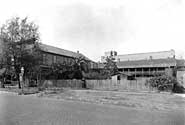 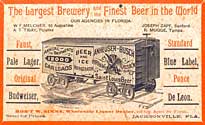 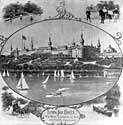 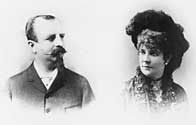   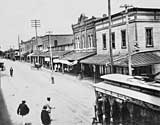  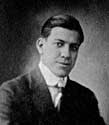 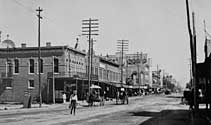 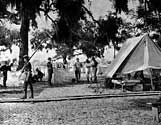  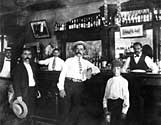 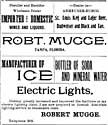   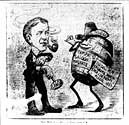  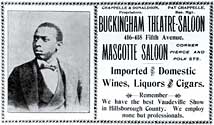  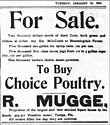 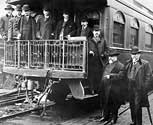    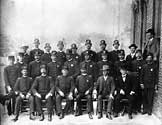 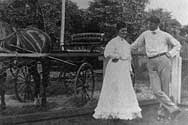 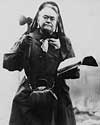  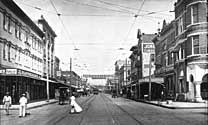   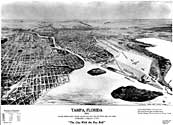 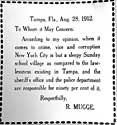       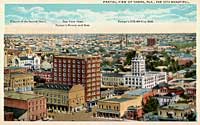 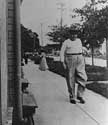      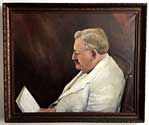 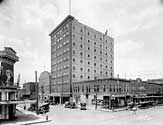  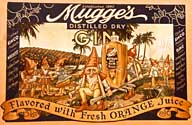
|
ADDITIONAL ILLUSTRATIONSClick Each Picture for a Larger View and Caption,       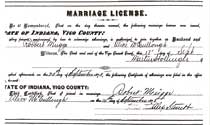     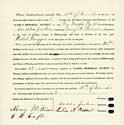       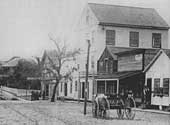 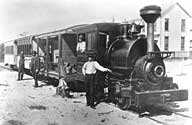               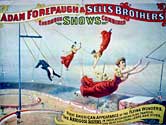   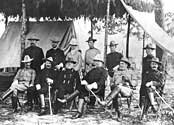 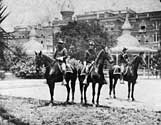      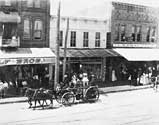      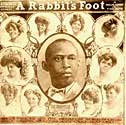 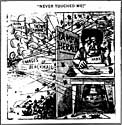 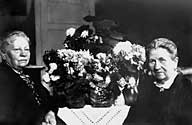 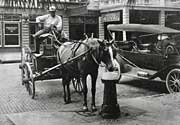 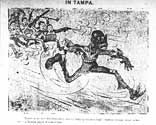   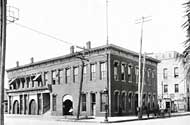     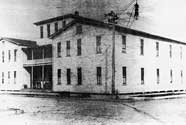  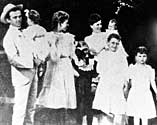    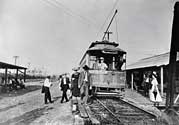 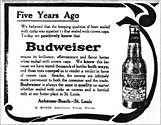  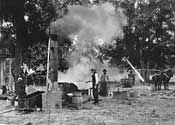  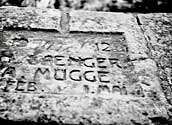        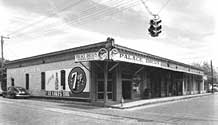 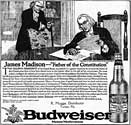 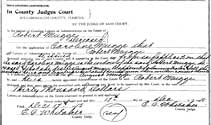  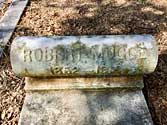 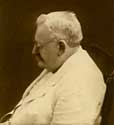 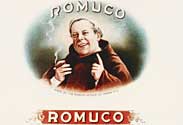  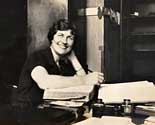  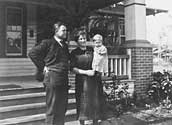            |
|
||||||



